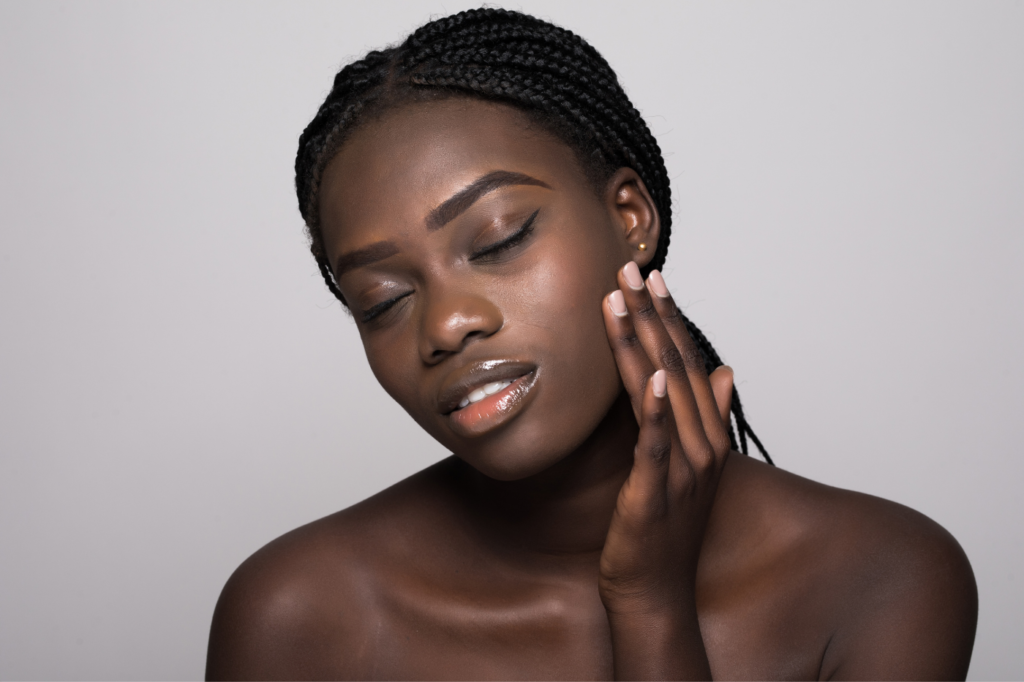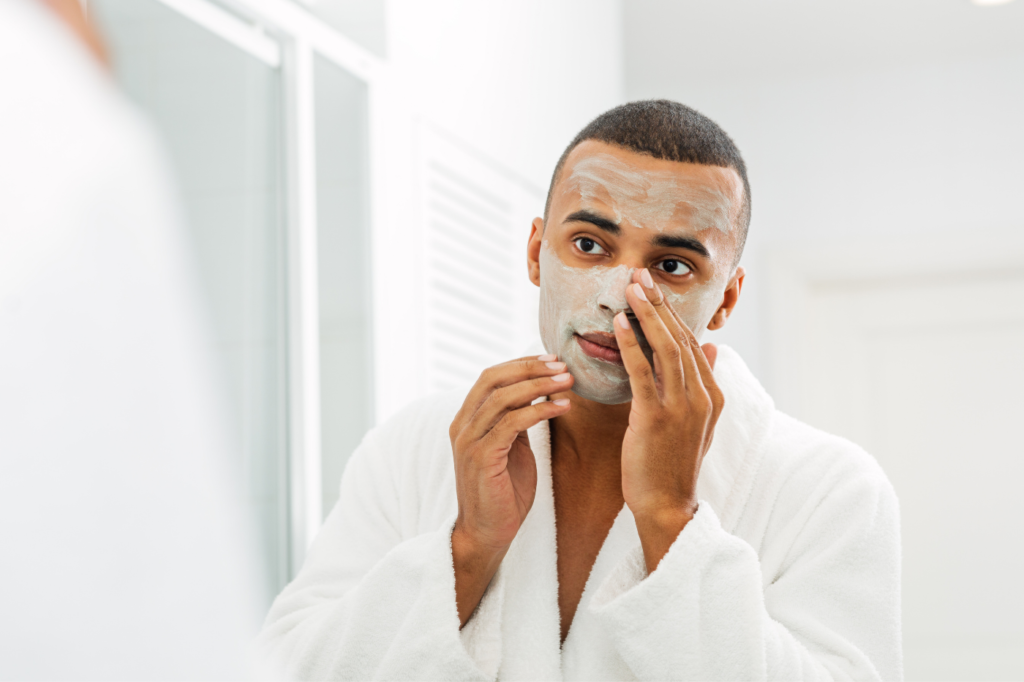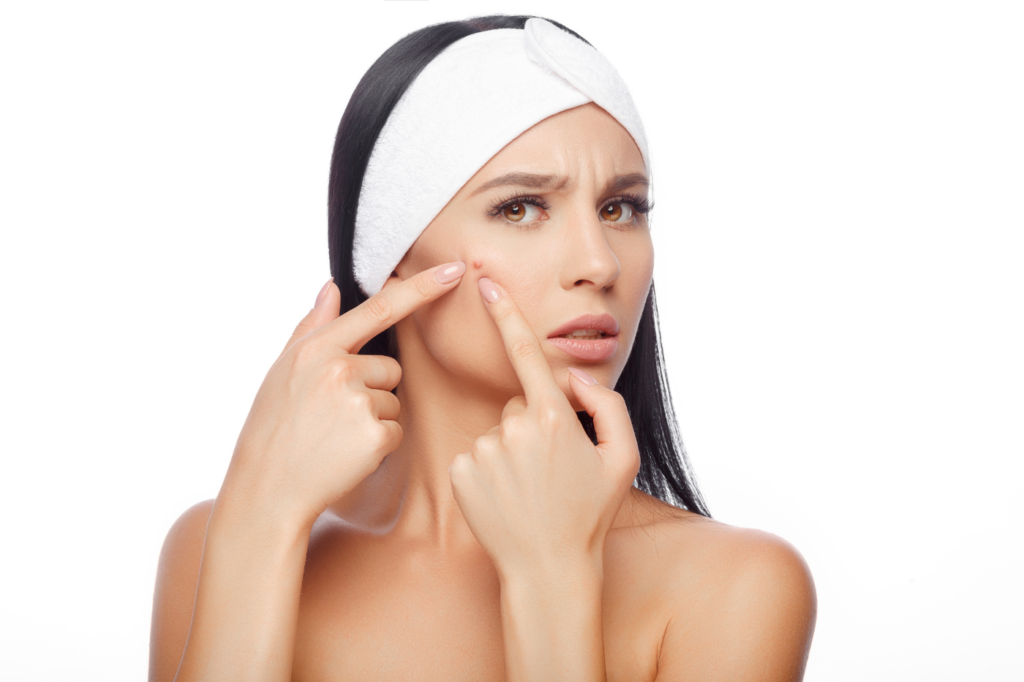Sulfur for acne isn’t new to the world of skincare. The element has been used in the battle for clear skin since ancient times and within Chinese medicine to fight inflammation and various skin conditions. Today, fans of sulfur say that it treats everything from hormonal acne to acne scars.
As it’s readily available as an over-the-counter (OTC) treatment found in sulfur masks, cleansers, and topical treatments, it’s also one of the most accessible acne-fighting choices out there. If you’re patient and dealing with milder forms of acne, you may find that sulfur clears your skin.
Here’s everything you need to know about sulfur for acne, including how effective it can be in stopping your breakouts and any potential risks with using it.

What are the properties of sulfur?
Sulfur is an antimicrobial, which means that it inhibits the growth of microscopic organisms, particularly pathogens. It’s similar to benzoyl peroxide and salicylic acid, two popular acne-fighting ingredients that also boast a drying effect, but sulfur is gentler on the skin.
How does sulfur help with acne? Sulfur helps with acne by drying out the surface of the skin. That helps absorb any excess oil that may clog your pores. It works by inhibiting bacterial growth, targeting the bacteria Cutibacterium acnes (formerly known as Propionibacterium) that can cause acne.
Sulfur also has keratolytic effects. That means it can help soften the outer layer of your skin, or keratin, through gentle exfoliation. You’ll see it recommended for other skin conditions thanks to this effect, including rosacea, seborrheic dermatitis, even dandruff, one of its earliest applications.
However, the drying effect of sulfur is the biggest reason it’s being used in acne management. Sulfur works by removing oil buildup and excess sebum that can lead to acne.
The dead skin cells left behind are then easy to exfoliate and slough off, leaving behind skin that’s cleansed and potentially cleared.
Effects Of Sulfur On Each Type Of Acne
Sulfur’s effects on different types of acne can vary, so it’s essential to understand the type of acne you’re dealing with to determine whether a sulfur treatment will be effective for you. Generally, sulfur for acne is recommended for mild acne and those with oily skin types.
How long does it take to see the results of sulfur for acne? It may take up to 3 months to see the results of sulfur for acne. Sulfur is considered a gentler acne product, which is why some combine sulfur with other acne treatments for faster results.
Effects On Mild Acne
Mild acne refers to cases involving whiteheads and blackheads and is generally the simplest to treat. Sulfur targets the very top layer of your skin, drying out the oil-producing glands that may be behind many of your whiteheads and blackheads. That makes it a good product for mild acne.
Over time, sulfur can work to prevent mild acne, particularly with those who suffer from very oily skin.
Effects On Moderate Acne
Moderate acne can include inflammation from damage caused by milder forms of acne known as papules and large, painful pimples called pustules. Both are caused by clogged pores.
Sulfur can dry out oil-producing glands, though it’s less effective than benzoyl peroxide for moderate acne. It’s most beneficial, though, when used with other acne medications, like sodium sulfacetamide.
Clascoterone is another topical acne treatment that has shown some success in moderate to severe acne, but that’s only from information available from clinical trials.
Effects On Severe Acne
Cystic acne is a severe type of acne caused by blocked pores that have become inflamed. Due to its severity and the possibility of infection, severe acne is the most difficult to treat.
Is sulfur good for cystic acne? Sulfur isn’t recommended for cystic acne, a severe form that is best addressed in a dermatologist’s office through more targeted measures and prescription medications.
To treat severe acne, many dermatologists will prescribe a short treatment of doxycycline. The oral antibiotic fights acne-causing bacteria and reduces inflammation caused by acne breakouts.
Effects On Acne Scarring
Scarring can be an unfortunate byproduct of severe, persistent acne breakouts.
Does sulfur fade acne scars? Sulfur may fade very light acne scars, as it does remove the very top layer of dead skin cells, but it’s unlikely that it will take care of deep scarring on your face.
Your dermatologist can recommend treatments to reduce acne scarring. Common treatments include combinations of salicylic acid, topical serums, and even facial resurfacing for more severe cases.
Using Sulfur For Acne
Sulfur can be used to both prevent zits and as an acne spot treatment for existing blemishes. It’s typically applied topically in a thin layer.
Acne products containing sulfur may also be found in lotions, creams, face masks, foaming cleansers, face washes, and ointments. Sulfur is readily available in many forms OTC, but prescription sulfur combination treatments are also popular.
Using sulfur in combination with other acne fighters like resorcinol, benzoyl peroxide, salicylic acid, sodium sulfacetamide, and even tea tree oil is commonplace in acne management. Your dermatologist can offer guidance on what treatments may help your individual case.
Potential Risks Of Sulfur For Acne
Sulfur is considered a reasonably gentle skincare product and is often recommended for patients with sensitive skin. Nevertheless, if you’re introducing sulfur to your skin for the first time, it’s vital to watch for any changes in your skin and ease into the product.
Start slow, gradually increasing how much sulfur you’re using on affected areas as you watch for side effects.
Side effects to watch for when using sulfur for acne include:
- Skin flaking
- Itching
- Redness
- Irritation
- Excessive dryness
Any of those side effects may mean you need to stop using sulfur. Those harsh effects and excessively dry skin may not be beneficial in the long run, causing more acne and skin irritation.
Then, there’s the smell: rotten eggs most associated with it may not agree with more sensitive skin types, either. Sulfur and those additives may then lead to an allergic reaction.
If you have sensitive skin, skin allergies, or other skin conditions, do a patch test. Before using sulfur on your face, apply a spot of sulfur on the inside of your arm and monitor for any side effects.
Other Holistic Acne Treatments
Sulfur products are just one option in the fight against acne. Many holistic treatments can improve your skin and reduce acne breakouts, such as:
- Zinc supplements: Zinc is an anti-inflammatory and antibacterial, fighting the skin irritation from breakouts and bacteria that can clog your pores and cause acne.
- Dietary changes: Making changes to your diet can lead to improvements in your skin. Foods that can cause acne include dairy, sugar, and fried foods.
- Intermittent fasting: Intermittent fasting may work to clear your skin by cutting out acne-causing food triggers, regulating your hormones, and reducing inflammation.
- Face mapping: Based on an ancient practice, face mapping for acne looks for possible underlying reasons for acne based on where your breakout occurs. This method is used with diet and lifestyle changes.
Holistic dermatology believes in treating the underlying source of breakouts and skin conditions rather than only the symptoms.
Final Thoughts On Sulfur For Acne
If you’re suffering from acne-prone skin and persistent blemishes, it’s always best to talk to a dermatologist before deciding if sulfur is the best acne medication for you.
Typically, sulfur is just one component of your new skincare plan, alongside other OTC or prescription products. The key to clear skin for you is likely a combination of diet, lifestyle, and skincare routine changes that will help put you on the path toward vibrant, healthy skin.
Sources
- McLaughlin, J., Watterson, S., Layton, A. M., Bjourson, A. J., Barnard, E., & McDowell, A. (2019). Propionibacterium acnes and Acne Vulgaris: New Insights from the Integration of Population Genetic, Multi-Omic, Biochemical and Host-Microbe Studies. Microorganisms, 7(5), 128. Full text: https://www.ncbi.nlm.nih.gov/pmc/articles/PMC6560440/
- Sparavigna, A., Tenconi, B., De Ponti, I., & La Penna, L. (2015). An innovative approach to the topical treatment of acne. Clinical, cosmetic and investigational dermatology, 8, 179. Full text: https://www.ncbi.nlm.nih.gov/pmc/articles/PMC4399783/
- Gupta AK, Nicol K. (2004). The use of sulfur in dermatology. J Drugs Dermatol, 3(4): 427-31. Abstract: https://pubmed.ncbi.nlm.nih.gov/15303787/
- Keri, J., & Shiman, M. (2009). An update on the management of acne vulgaris. Clinical, cosmetic and investigational dermatology: CCID, 2, 105. Full text: https://www.ncbi.nlm.nih.gov/pmc/articles/PMC3047935/
- Del Rosso JQ. (2009). The use of sodium sulfacetamide 10%-sulfur 5% emollient foam in the treatment of acne vulgaris. J Clin Aesthet Dermatol, 2(8), 26-9. Abstract: https://pubmed.ncbi.nlm.nih.gov/20729951/


